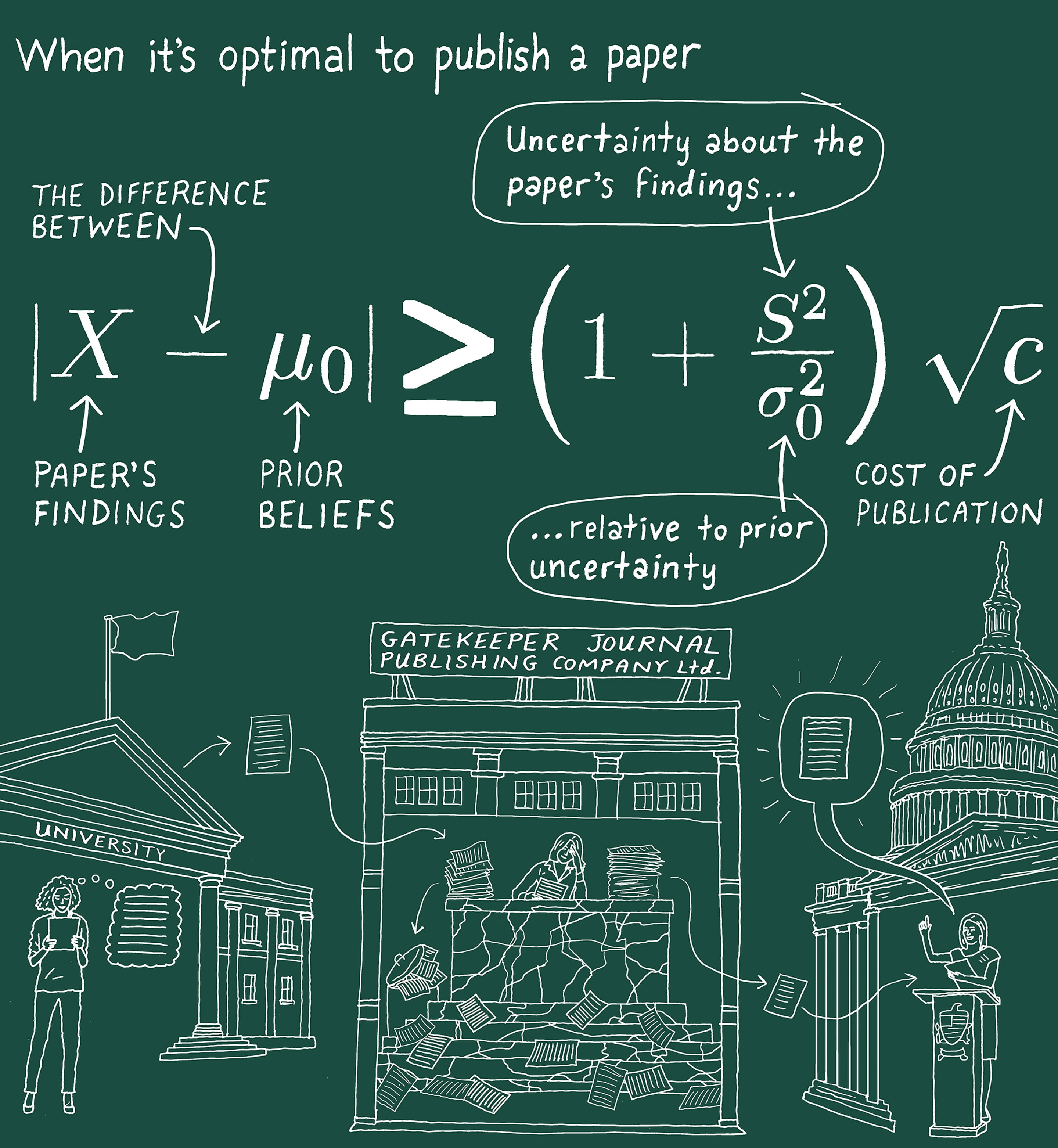In the world of academic journals, editors are the gatekeepers of their discipline, accepting only high-quality research papers that push the frontier of knowledge forward. But beyond furthering the field and maintaining a journal’s high standards, editors can use other criteria when choosing which papers to publish, including whether a paper’s findings can guide policy makers in forming policies that achieve better outcomes for society, argue Chicago Booth’s Alexander Frankel and University of Oxford’s Maximilian Kasy. For a paper to inform policy makers and prompt a change in policy, its findings must deviate substantially from prevailing beliefs on a particular policy. A paper that simply confirms existing policies doesn’t add much value and comes with an opportunity cost—if published, it can shift the public’s attention away from papers that deserve more attention. To learn more about this research, read “A way out of the replication crisis.”
The Equation
Adapted from the researchers’ paper, “Which Findings Should Be Published?”

Illustration by Peter Arkle
Alexander Frankel and Maximilian Kasy, “Which Findings Should Be Published?” American Economic Journal: Microeconomics, forthcoming.
Your Privacy
We want to demonstrate our commitment to your privacy. Please review Chicago Booth's privacy notice, which provides information explaining how and why we collect particular information when you visit our website.
